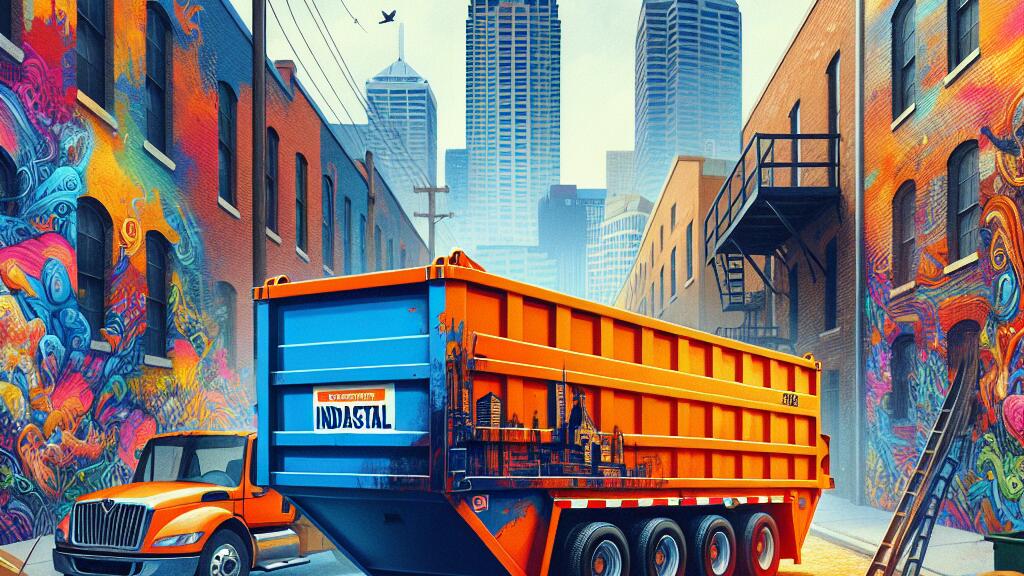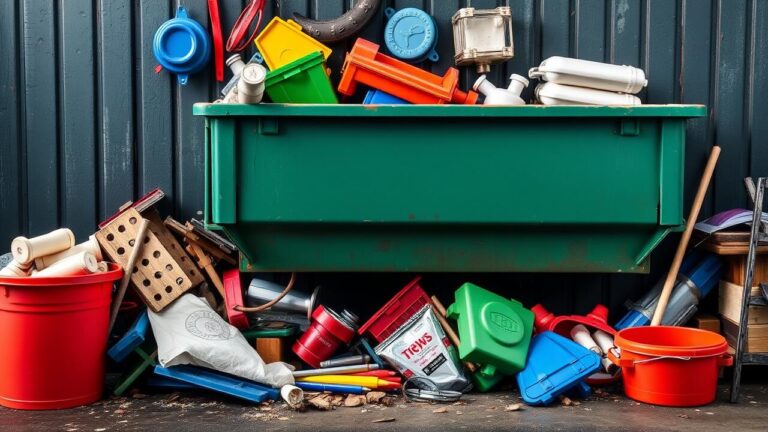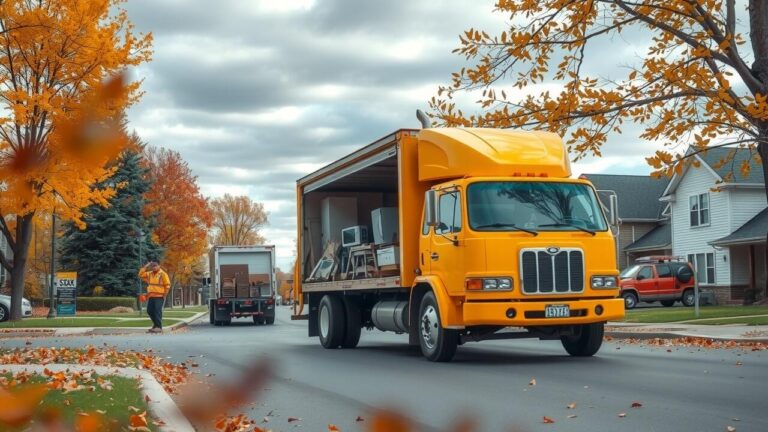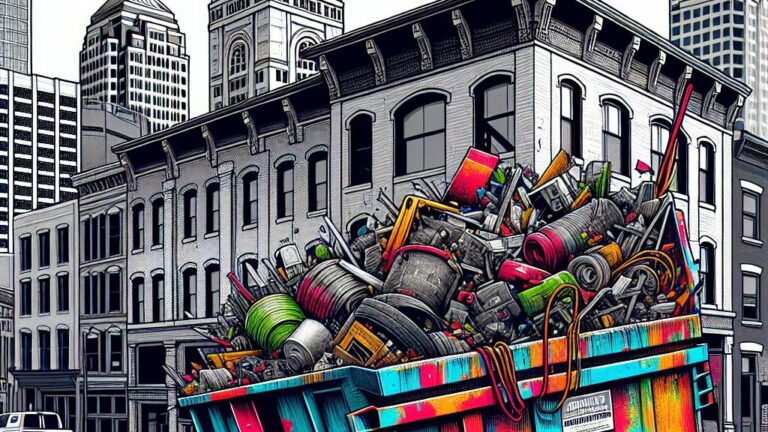What to Know About Construction Dumpsters in Indianapolis
Regulations and Permits in Indianapolis
Before renting a construction dumpster in Indianapolis, it is crucial to understand local regulations and permit requirements. Many municipalities have specific guidelines regarding the placement and use of dumpsters. For instance, obtaining a permit may be necessary if the container will occupy a public street or sidewalk. Failing to comply with these regulations can lead to fines and removal of the dumpster.
Homeowners and contractors should check with the Indianapolis Department of Public Works or local zoning offices for detailed information. This ensures that the selected dumpster size and placement adhere to municipal codes. Proper planning helps avoid any logistical issues that may arise during a construction project, providing a smoother experience for all involved.
Compliance with Local Laws
Construction projects in Indianapolis require adherence to specific regulations to ensure safety and legality. Before obtaining a dumpster, it is crucial to check local laws related to construction debris disposal. Each municipality may have different requirements, including permit applications that outline where a dumpster can be placed and the duration of its use. Ignoring these regulations can result in fines or project delays, highlighting the importance of compliance.
Understanding the full range of local ordinances also aids in identifying permissible dump sites for various materials. Certain waste, such as hazardous substances, requires special handling and disposal methods. By familiarizing oneself with these requirements, contractors and homeowners can navigate the complexities of waste management effectively. Being proactive about compliance not only helps avoid potential penalties but also contributes to a safer community.
Best Practices for Loading a Dumpster
Efficiently loading a dumpster can significantly impact its capacity and maximize value. Begin by breaking down larger items to create more space. Distributing weight evenly helps maintain stability. Placing heavier items at the bottom reduces the risk of a toppled load. Arrange materials in a way that allows for optimal stacking. This practice not only conserves space but also ensures that the container remains within safety guidelines.
When loading, take care to avoid overfilling the dumpster. An overloaded dumpster can lead to excess debris spilling out during transport, posing safety risks. Always adhere to the fill line marked on the container. Use tarps or nets to secure loose items during transport if necessary. Efficient loading combines organization with safety, making the disposal process smoother and more effective.
Tips for Maximizing Space
Efficiently organizing the materials inside a dumpster can significantly increase its capacity. Begin by breaking down large items, such as furniture or pallets. This not only allows for better stacking but also creates more room for smaller debris. Layering heavier items at the bottom and lighter items on top helps distribute weight evenly.
Utilizing space-saving techniques can also make a difference. Filling in gaps with smaller materials, like shredded paper or packing peanuts, can maximize every inch. Avoid leaving large voids, as even small spaces can add up when considering the total volume of the dumpster. Ensure that the dumpster door can close securely to comply with local regulations and protect the surrounding area from spillage.
Common Items to Dispose Of
When renting a construction dumpster, it’s essential to know the types of materials that can be disposed of to ensure compliance with local regulations. Construction debris, such as wood, metal, concrete, and drywall, is typically acceptable. Home renovation items like old flooring, cabinets, and appliances also fall within the range of permissible waste. However, certain items require special handling or may be prohibited entirely.
Understanding what cannot be placed in a dumpster is equally important. Hazardous materials, including chemicals, paints, and batteries, pose environmental risks and are strictly forbidden. Additionally, large appliances like refrigerators and air conditioning units may have specific disposal requirements due to their components. Familiarizing oneself with these guidelines helps streamline the disposal process and ensures a more efficient project timeline.
Acceptable vs. Prohibited Materials
Understanding what can and cannot be placed in construction dumpsters is essential for maintaining compliance with local regulations. Acceptable materials typically include debris from renovations, such as wood, drywall, and certain types of roofing. Additionally, concrete, metal, and yard waste are generally permitted. The specific types of materials allowed may vary by dumpster service provider, so it’s crucial to confirm these guidelines before starting your project.
On the other hand, some items must never be disposed of in construction dumpsters. Hazardous materials, including batteries, chemicals, and asbestos, are strictly prohibited due to their potential environmental impact. Appliances containing refrigerants, tires, and electronic waste also fall into this category. Disposing of these items improperly can lead to hefty fines and additional penalties, underscoring the importance of adhering to established rules.
Environmental Considerations
Environmental impact is a significant consideration when using construction dumpsters. Proper waste management practices help minimize the adverse effects of construction debris on the local ecosystem. Ensuring that materials are sorted correctly can reduce landfill overflow and promote recycling efforts. Many construction sites overlook the opportunity to recycle materials such as metals, concrete, and certain woods.
Choosing a dumpster rental service that prioritizes sustainability can make a positive difference. Look for companies that have established procedures for recycling and responsible disposal. Such practices not only help in complying with regulations but also demonstrate a commitment to environmental stewardship. By being aware of disposal methods, contractors can contribute to a more sustainable future while efficiently managing construction waste.
Recycling and Waste Management
Proper recycling and waste management play a crucial role in minimizing the environmental impact of construction activities. Many cities, including Indianapolis, emphasize the importance of diverting waste from landfills through recycling initiatives. Construction sites often generate a significant amount of recyclable materials such as concrete, metal, wood, and drywall. By sorting these items before disposal, contractors can reduce their ecological footprint while also potentially saving on waste disposal costs.
Local waste management services typically provide guidelines on recycling specific materials. Understanding which items can be recycled is essential for both contractors and homeowners embarking on renovation projects. Following these guidelines not only streamlines the disposal process but also contributes to sustainability efforts within the community. Engaging with recycling programs ensures that materials are reused effectively, fostering a culture of environmental responsibility in the construction industry.
FAQS
What permits are required for using a construction dumpster in Indianapolis?
In Indianapolis, you may need a permit if you’re placing a dumpster in the public right-of-way or on city streets. It’s best to check with local authorities to understand the specific requirements for your project.
What are some best practices for loading a construction dumpster?
To effectively load a dumpster, start by placing larger items at the bottom and work your way up with smaller items. Avoid overloading the dumpster and ensure materials are evenly distributed to maximize space.
What types of materials can I dispose of in a construction dumpster?
Generally, you can dispose of construction debris, household items, and yard waste. However, it’s important to understand the difference between acceptable and prohibited materials to avoid extra fees.
How does recycling play a role in construction dumpster use?
Recycling helps reduce waste in landfills and can promote sustainability. Many construction dumpsters in Indianapolis are designed to accommodate recyclable materials, so it’s beneficial to separate them when loading your dumpster.
What should I do if I have prohibited items to dispose of?
If you have prohibited items, such as hazardous materials, electronics, or appliances, you should find designated disposal facilities or recycling centers that can safely handle these materials instead of placing them in a construction dumpster.







